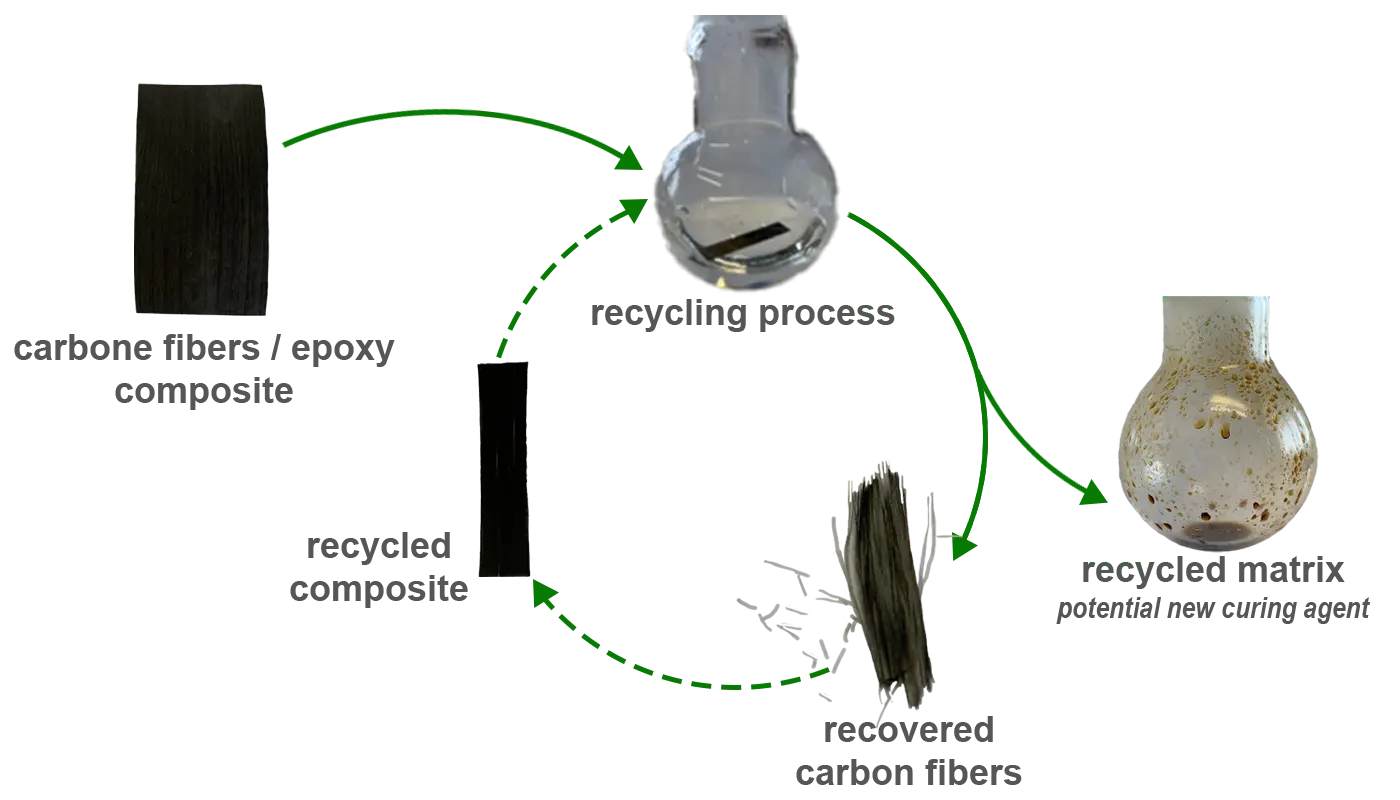Nicolas carried out his research in the SMODD team at the Softmat laboratory
On 11th of July, he defended his thesis entitled: “Low environmental impact recycling process of continuous carbon fibers from epoxy/unidirectional carbon fibers structural composites”
The aim of his research work was the tailoring and implementation of a low environmental impact recycling process of structural epoxy / unidirectional continuous carbon fibers (CF). Thermogravimetric and turbidimetric analysis, allowed him to assess the efficiency of the reactive formulas developed in the laboratory. The reaction medium made with propylene carbonate, hydrogen peroxide and citric acid was optimized by quantitative structure-property relationships (QSPR). The reactive formulation can depolymerize the epoxy matrix of a one-ply composite in less than 24 hours at 60°C under atmospheric pressure. The process recovers continuous carbon fibers; their length only depends on the shape of the reactor.

By using different models of epoxy matrices, the selectivity of the solution was determined, and a reaction mechanism was proposed. The latter shows the cleavage of C-N bonds due to network oxidation and the formation of N-H reactive functions, allowing chemical reactions to revalorize the depolymerized matrix.
Recycled carbon fibers were analysed by scanning electron microscopy (SEM) and tensile tests. They exhibit a clean surface and 89% of the Young Modulus of virgin sized carbon fibers was maintained.
Recycled continuous carbon fibers were used to develop biobased epoxy matrix composites. Virgin carbon fibers composites using the same biobased matrix were used as reference. SEM analysis of cryo-fractured composites show a similar CF/matrix continuity. At glassy state, the shear conservative modulus was measured by dynamic mechanical analysis (DMA) with a value of 3.2 GPa for recovered carbon fibers composites and 4.1 GPa for original carbon fibers composites. This deviation is due to lack of sizing of the recycled CF. The results show the performance and the significance of continuous CF recycling for the development of technical composites.
This research project involved Expleo company and another research team at the CIRIMAT. laboratory.
Highlights of the thesis:
- Nicolas is co-inventor of 2 patents with Expleo.
- He presented his work at the 27th Green Chemistry & Engineering Conference in Los Angeles in June 2023 and participated in EnviroPro, an industriel exhibition held in Bordeaux in September 2021.
- He also won one of the 3 Airbus prizes in the call for expressions of interest circular economy 2023 “Commercial aircraft at end of life”, lauched by Aerospace Valley, Airbus and Tarmac Aerosave.
Many congratulations to Nicolas for the quality of his work!
